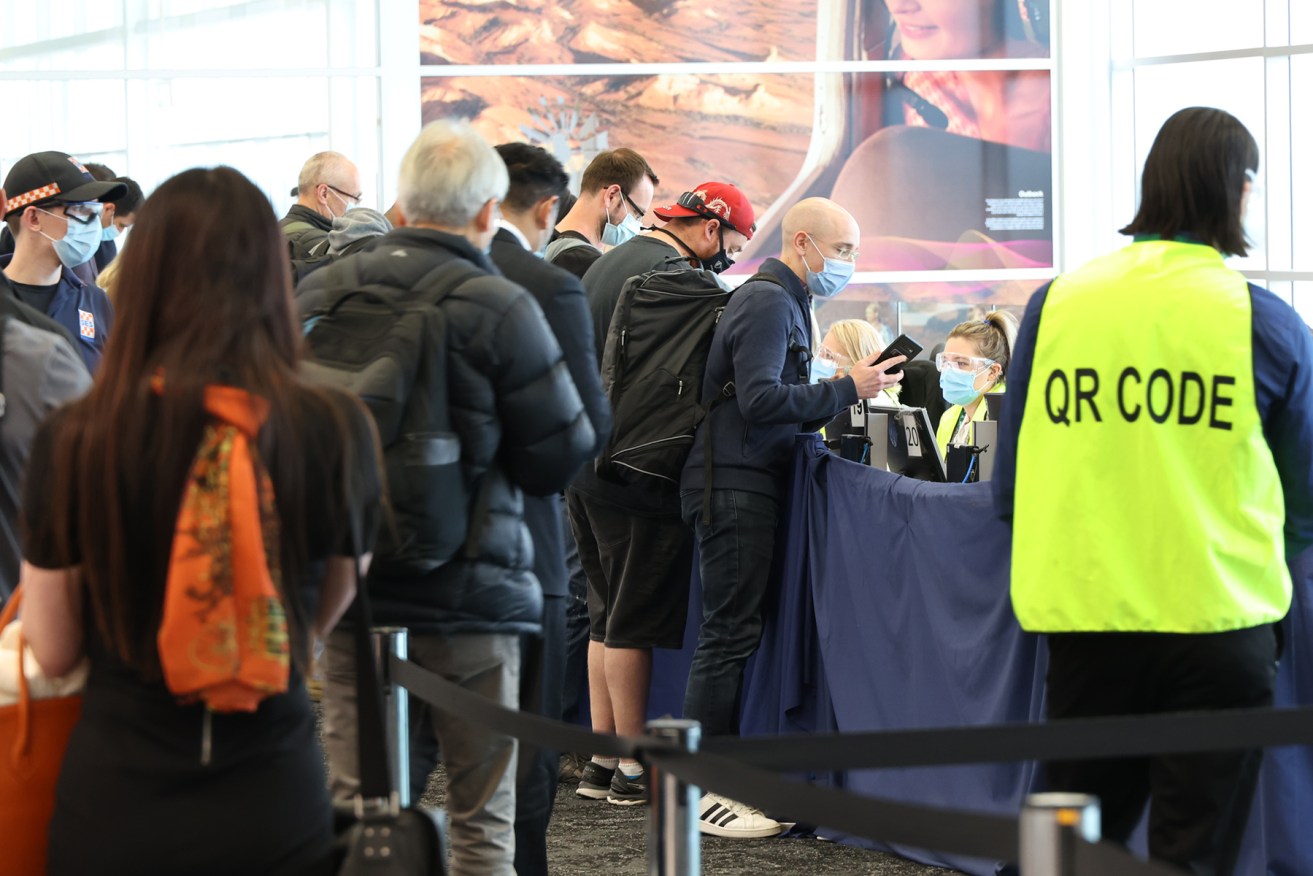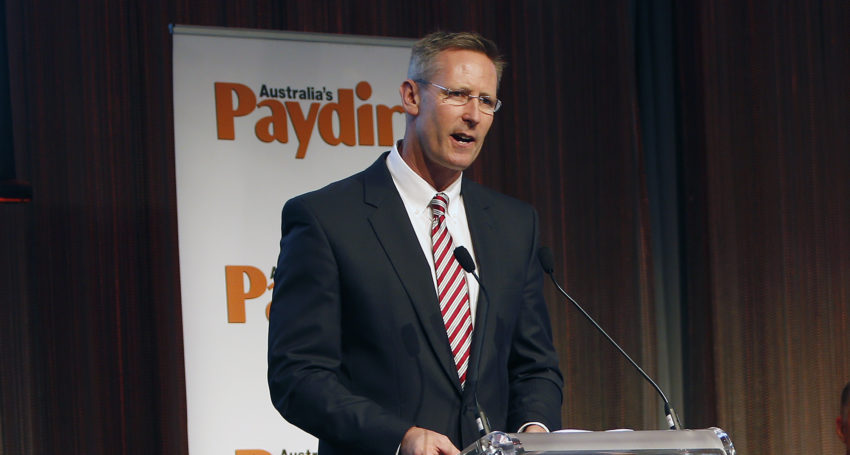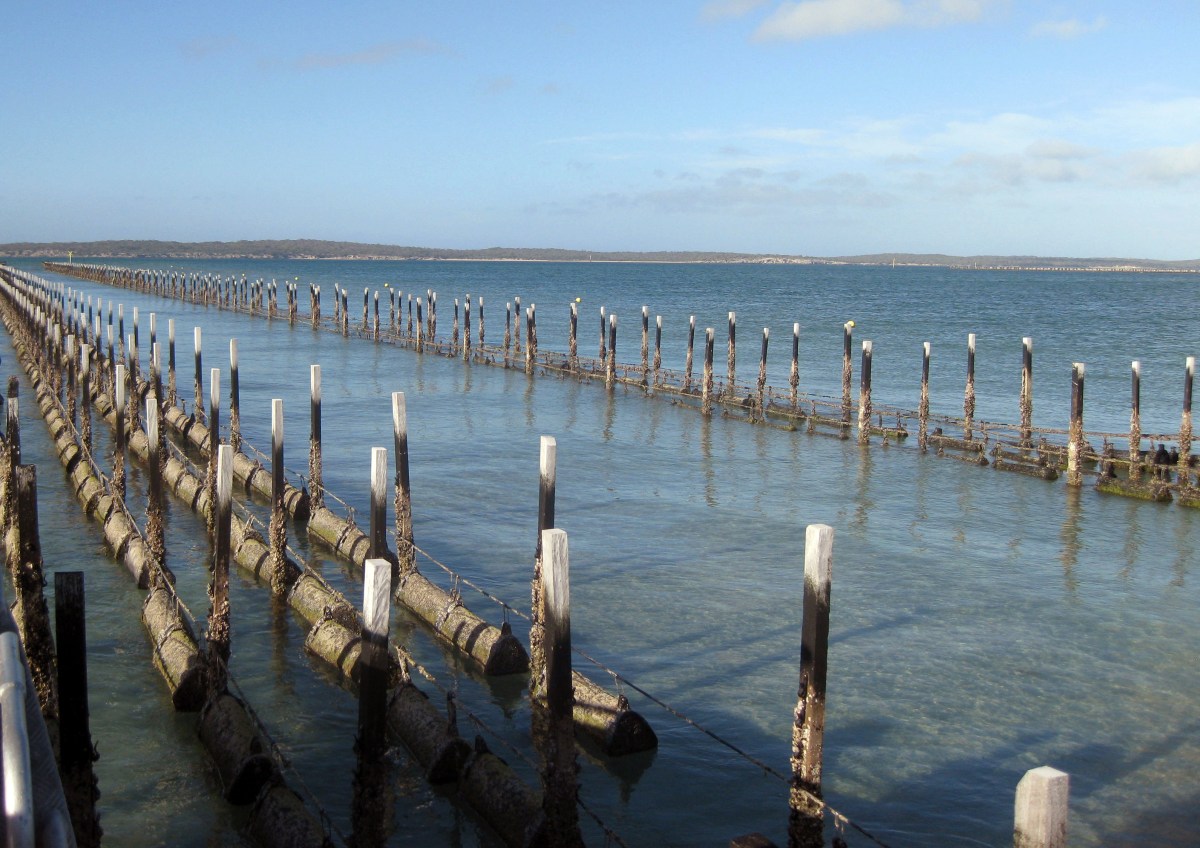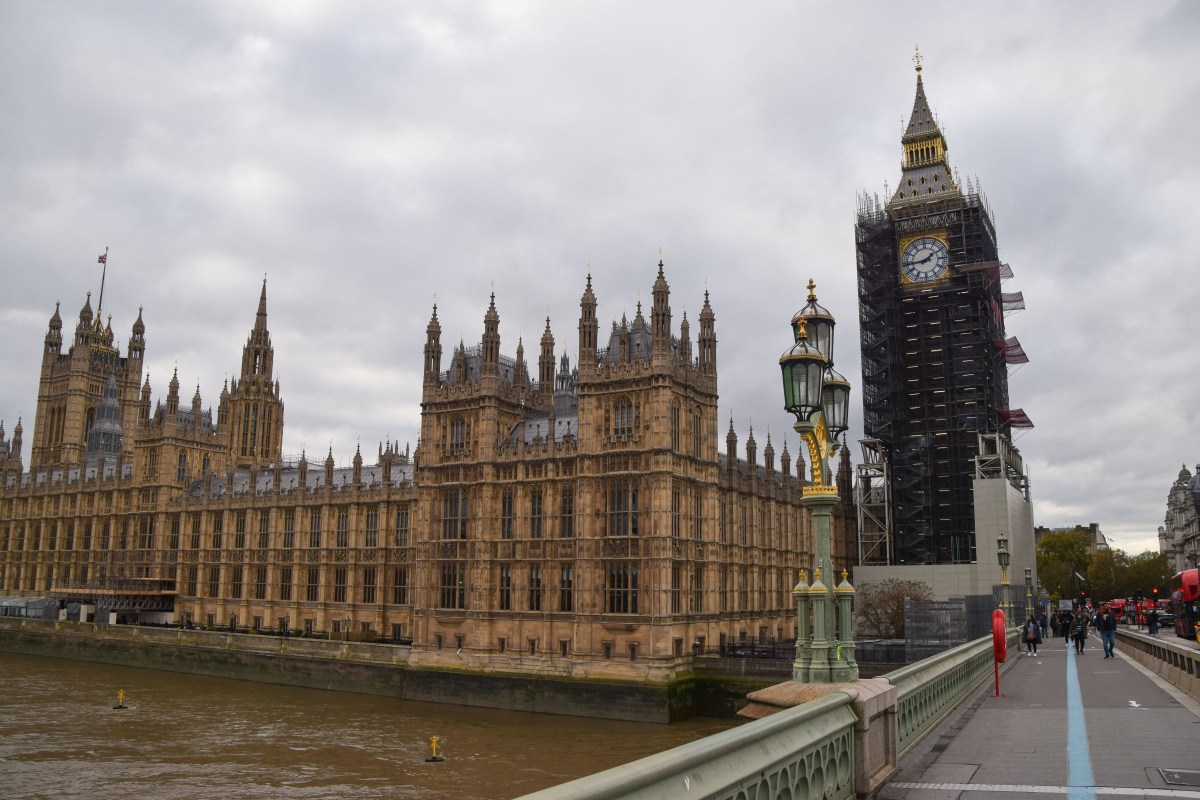What we know today, Wednesday November 24
South Australia has recorded a new COVID-19 case – after an earlier positive was confirmed to be an ‘old’ infection – a day after the state opened its borders to all states and territories, Premier Steven Marshall has confirmed.

Adelaide Airport check-in. Photo: Tony Lewis/InDaily
- State records new COVID case after border reopening
- ‘Old’ COVID infection in Victorian traveller after SA border opens
- Jetstar pilot arrested over pair’s disappearance in Victoria’s high country
SA border opening risks WA shutout - Interim Deputy Premier appointed
- Oysters growers call for support after ‘devastating’ product recall
- US releases 50 million barrels of oil to tackle energy prices
- Morrison Government pledge commission to end domestic violence
- London’s Big Ben to show face for first time in three years
State records new COVID case after border reopening
South Australia has recorded a new COVID case – after earlier detecting an ‘old’ infection – just a day after the state borders re-opened, Premier Steven Marshall has said.
It followed an earlier case revealed early this morning that has been proved to be a case a ‘viral shedding’ by a person who had previously tested positive some weeks ago in Victoria, and who is not considered contagious.
Marshall told media before 1pm today he had just been informed of a new positive case in SA, but did not have further details – which he said would be provided by SA Health later today.
“You can’t keep this disease out,” he said.
“What we’re trying to do though is bring it in on our own terms.
“It would be almost like saying we want to stamp out the common cold in SA… it can’t be done [but] what we’ve got to do is make sure we maximise our protection in SA, by getting our vaccination rate up as high as possible.”
‘Old’ COVID infection in Victorian traveller after SA border opens
An old COVID-19 infection has been detected in a traveller from Victoria, a day after South Australia opened its borders to all states and territories.
But Chief Public Health Officer Nicola Spurrier says the positive result is not a concern and won’t be added to the state’s tally of coronavirus cases.
“Because they had to have the testing when they came in….they’re still shedding a month later,” Professor Spurrier told ABC radio on Wednesday.
“They’re not infectious so they’re no risk to the community.
“In fact, they won’t become an active case for us in our state because they’ve already been counted as a case in Victoria.”
Prof Spurrier also reaffirmed that SA does not currently have a local virus outbreak.
Under SA’s new travel rules, anyone coming into the state must be double vaccinated and use a new online border entry process known as EntryCheck SA, which assesses an individual’s vaccination status, departure location and COVID-19 risk.
Based on the information provided, travellers may also be prompted to use a new HealthCheck SA app, which will help them monitor daily symptoms and guide them through any testing and quarantine requirements.
In most cases, travellers are required to have a COVID-19 test within 72 hours of departure.
Unvaccinated travellers will be required to seek a special exemption with applications to be assessed on a case-by-case basis.
So far more than 60,000 people have registered to come into SA in the coming days and weeks.
It comes as Victoria recorded 1196 new COVID-19 cases and three deaths overnight, with the proportion of the population vaccinated still at 89 per cent.
The new infections bring the number of active cases in the state to 9774, including 284 in hospital, lowering the seven-day average to 308.
There are 52 people in intensive care actively infectious, while 53 of them have been cleared of the virus and 29 are on a ventilator.
The latest deaths take the state’s toll from the pandemic to 1302.
Some 72,754 tests were processed on Tuesday, while 3358 vaccine doses were administered at state-run hubs.
More than 89 per cent of Victorians aged 12 and over are now fully vaccinated.
Jetstar pilot arrested over pair’s disappearance in Victoria’s high country
Charges are expected to be laid over the disappearance of missing Victorian campers Russell Hill and Carol Clay as their grief-stricken families await answers.
A 55-year-old Caroline Springs man is being questioned following a dramatic arrest by specialist police at a remote campsite in Arbuckle Junction, some 280km northeast of Melbourne, on Monday night.
The man, a captain with budget airline Jetstar, remains in custody, while his Nissan Patrol four-wheel-drive has been seized.
He has been stood down by the airline following his arrest and Jetstar will assist the investigation if needed, a spokeswoman said.
Clay’s sister Jill Walker said she wasn’t aware of the man before his arrest.
“They really have found a needle in a haystack because it’s such a remote and huge area,” she told Nine’s Today.
She is hopeful police have the right person and charges are laid so justice can be meted out through the courts.
“We would love to be able to find the bodies,” she said.
“But I feel if we had to make a choice between the two, having the person whose committed this so that they can’t do it again is more important in the first instance.”
Hill and Clay were last heard from on March 20, 2020, while camping in the Victorian Alps.
On March 20, Hill made a call via high-frequency radio saying he was at Wonnangatta Valley.
During the call, the experienced outdoorsman said he was having radio transmission issues.
Clay, a former Victorian Country Women’s Association president, told friends she was heading away and expected to return home on March 28 or 29.
Investigators were told the couple were camping together at Wonnangatta River near the Wonnangatta camping ground.
Campers found Hill’s fire-damaged car at their campsite, which was destroyed by fire, near Dry River Creek Track on March 21.
The pair have not been seen or heard from since.
SA border opening risks WA shutout
As South Australians reunite with loved ones from the COVID-hit eastern states, COVID-free Western Australia is watching closely for any virus transmission here before deciding whether to bar entry.
South Australia on Tuesday entirely abandoned state-based border restrictions, moving to a system based on the vaccination rate of individual areas.
“There’s no state border as such — it is now down to the risk of the individual LGAs (Local Government Areas) to determine what the rules are,” a SA Health spokesperson advised InDaily.
The spokesperson confirmed this means borders have reopened to the Northern Territory, which is dealing with a COVID-19 outbreak, as well as the states that have resigned to living with the virus in NSW and Victoria.
The move significantly increases the likelihood of community transmission in SA — and of the prospect that COVID-free states such as WA will shut South Australians out.
South Australians are currently free to travel to WA, but the McGowan government has signalled that it will place tight travel restrictions on any places with COVID-19 community transmission, up until the date it expects to hit a 90 per cent vaccination rate of over 12s — which could be as late as February.
A spokesperson for WA Health Minister Roger Cook advised InDaily that the state would decide on border closures depending on the “specific circumstances of the situation”.
“Each state is doing its own thing and we have no comment to make on the SA decision,” the spokesperson said. “The WA situation is when we get to 80 per cent in a couple of weeks, we will set the date of when we expect to hit 90 per cent vaccinated for easing borders.”
In September WA Premier Mark McGowan flagged that SA’s decision to reopen borders left it exposed to an enhanced risk of community transmission, which if it came to pass meant “most likely we would close to that jurisdiction.”
For Adelaide-based motion graphics designer Andreas Heikaus, that could mean a second Christmas in a row of abandoned plans for seeing WA-based family.
Heikaus’s brother and family were planning to visit last December before border closures got in the way, forcing the plan to be shifted to this Christmas instead.
Heikaus told InDaily he was particularly concerned about the prospect of again missing out on time with his nephews and nieces, aged between six and and 13.
“I think it’s especially difficult with the kids,” he said. “If I don’t see my brother for a year it is a shame, but with kids if you miss one or two years thats important — otherwise they might look at you and ask who you even are.”
-Max Opray
Interim Deputy Premier appointed

Dan van Holst Pellekaan (Photo: supplied)
Energy Minister Dan van Holst Pellekaan has been quietly appointed to the role he is expected to seek his colleagues’ endorsement for at a party-room ballot tomorrow, handed the role of Deputy Premier on an interim basis.
Ex-Speaker Josh Teague was yesterday sworn in as the state’s new Local Government and Planning Minister, replacing Vickie Chapman who quit both portfolios.
He will also be acting as Attorney-General, with Chapman “standing aside” from her primary ministry while under investigation by the Ombudsman for potential conflicts of interest and breaches of the ministerial code of conduct.
The Liberal House of Assembly party-room will meet tomorrow to elect a new deputy leader, with van Holst Pellekaan, David Speirs and John Gardner all understood to be considering contending.
However, van Holst Pellekaan will already be serving in the role after being appointed by the Governor as the state’s Deputy Premier yesterday – a fact not made public until a late afternoon notice in the Government Gazette.
Premier Steven Marshall’s office said van Holst Pellekaan, the leader of government business in the House, was in the role on an interim basis and was selected because he is the most senior cabinet member after Chapman.
It comes as the Government finally clarified its legal advice on Chapman’s ministerial remuneration while she takes leave from her role.
She will remain in cabinet, but not attend meetings, with the Premier yesterday unable to explain whether she would be able to forego her $150,000 ministerial salary boost or opt to somehow pay it back.
In a statement after 5pm yesterday, Treasurer Rob Lucas said that “the Government has just received Crown Law advice confirming that the Honourable Vickie Chapman MP is able to relinquish her entitlement to additional Ministerial salary for the entire period that another minister is performing the functions and discharging the duties of the Attorney-General”.
-Tom Richardson
Oysters growers call for support after ‘devastating’ product recall

Oyster farms in Coffin Bay, South Australia (AAP Image/Liza Kappelle).
Coffin Bay oyster growers are estimating last week’s product recall due to a spike in gastro cases will cost the industry millions of dollars, prompting a call for government support to prevent local businesses from going under.
SA Health on Friday initiated a full recall of the Coffin Bay delicacy after 56 people contracted Vibrio parahaemolyticus (VP) from eating the region’s oysters.
The disease can cause gastro, nausea, vomiting and fever, with symptoms usually present within 24 hours of eating the contaminated food.
The recall covers all oysters sold from the Coffin Bay region from September 4 to November 16.
The Department of Primary Industries and Regions also last week shut down oyster harvesting and production at Coffin Bay to give officials an opportunity to trace back recent VP cases.
South Australian Oyster Growers Assocaition Chair Rob Kerin said the recall and shutdown is “likely to cost the industry millions of dollars” and will “sadly result in some producers being forced to close their business”.
“We fully support a public safety-first approach and back the decision of SA Health to issue the recall, but it will be a further blow for the industry, which has weathered a number of very tough years,” Kerin said.
“Many producers were really only just starting to recover after weathering a shortage of spat to grow oysters, the establishment of new hatcheries, and then COVID, which saw a massive drop in demand due to restaurant closures.
“To say this is devastating in the lead-up to Christmas is an understatement.”
Kerin said the association would “certainly be talking” to the State Government about support measures for affected businesses.
“We need to be there for our growers, who are suffering both emotionally and financially, as well as provide support to everyone along the supply chain,” he said.
ASX listed Angel Seafood – the Southern Hemisphere’s largest organic certified pacific oyster producer, with farm leases in Coffin Bay, Haslam and Cowell – reported earlier this week that it expects oyster harvesting to resume in Coffin Bay on November 29.
The Port Lincoln-headquartered company earlier this month reported a 5 per cent increase in September quarter revenue to $2.1 million.
The presence of VP in oysters this year has been attributed to “highly unusual” environmental conditions.
No cases of the disease were reported in 2020, according to SA Health, while eight cases were recorded in 2019.
US releases 50 million barrels of oil to tackle energy prices
The United States will release 50 million barrels of crude from the US Strategic Petroleum Reserve to help lower oil prices, that will start hitting the market in mid- to late-December, the White House says.
The release will take the form of a loan and a sale, and was being in made concert with other releases from strategic reserves by China, India, South Korea, Japan and the United Kingdom, senior US administration officials said.
It was the first time the US has co-ordinated releases with some of the world’s largest oil consumers, the officials said.
The Strategic Petroleum Reserve is an emergency stockpile to preserve access to oil in case of natural disasters, security issues and other events.
Maintained by the US Department of Energy, the reserves are stored in caverns created in salt domes along the Texas and Louisiana Gulf Coasts.
There are roughly 605 million barrels of petroleum in the reserve.
US President Joe Biden’s administration has argued that the supply of oil has not kept pace with demand as the global economy emerged from the pandemic and that the reserve is the right tool to help ease the problem.
The US Department of Energy will make the oil available from the Strategic Petroleum Reserve in two ways; 32 million barrels will be released in the next few months and will return to the reserve in the years ahead, the White House said.
Another 18 million barrels will be part of a sale of oil that Congress had previously authorised.
White House press secretary Jen Psaki said on Monday evening that the government would also keep tabs on the oil companies.
“We will continue to press oil companies who have made record profits and are overseeing what we consider to be price gouging out there when there’s a supply of oil or the price of oil is coming down and the price of gas is not coming down,” Psaki said.
Morrison Government pledge commission to end domestic violence
The federal government is setting up a Domestic, Family and Sexual Violence Commission as part of its next national plan to end violence against women and children.
Funded by $22.4 million over five years, the commission will monitor and evaluate the effectiveness of initiatives to prevent violence, intervene early and better support victim-survivors.
Minister for Women’s Safety Anne Ruston said the new commission would operate as a government agency led by a chief executive, or commissioner, and have research and secretariat staff.
The announcement comes as Labor promised to set up a national commissioner to co-ordinate domestic and sexual violence prevention if it wins government at the next federal election.
The opposition has also pledged to spend $153.4 million over four years on 500 additional workers to support women in crisis.
Half of those community sector workers would be based in rural and regional Australia.
“Right now, women fleeing violence are being turned away from accommodation and services because of insufficient funding towards sector workers, and the failure to recognise this tragedy as a national priority,” Labor leader Anthony Albanese said.
A family, domestic and sexual violence commissioner would be appointed to report yearly on progress at stopping violence against women and children under successive national plans.
They would also help coordinate consistent access to support services across the country, and work with states, territories and Commonwealth agencies to ensure there was the necessary data to inform effective investment.
Albanese accused the Morrison government of failing to fund adequately support services and accommodation.
He said women’s refuges turn away up to half the women who sought help, while only one in 10 women who wanted to remain in their homes safely had the necessary support to do so.
The extra funding would be used to provide shelters with an extra case manager and community organisations with a financial counsellor.
Specialist women’s services would also be able to hire a support worker to help children work through trauma.
London’s Big Ben to show face for first time in three years

Big Ben has been behind scaffolding for three and a half year (Photo: Vuk Valcic/SOPA Images/Sipa USA).
Big Ben’s dials will emerge from a shroud of scaffolding in time for the world-famous clock to perform its most important annual role – ringing in the new year for thousands on the streets of London and millions more watching on television.
The clock tower of the UK’s Houses of Parliament has been hidden for three-and-a-half years while hundreds of craftspeople repaired masonry, replaced metalwork and repainted and regilded in the biggest restoration since it was built in 1859.
Project manager Nick Sturge said removing the scaffolding was a “massive milestone” in the £79.7 million ($A147.5 million) project.
“By new year, people will start to see a big difference; they’ll start to get their tower back,” he said.
“The roofs will be fully visible along with the four clock faces.”
The restoration includes replacing all of the panels on the clock faces using sand-blown glass, Sturge said.
The dials’ hands, numerals and other details have been repainted bright blue rather than the black long familiar to Londoners.
Sturge said an early watercolour showed a blue colour scheme, which was confirmed by paint analysis that discovered the first coat was Prussian blue.
“It’s really striking,” he said.
“When you stand on the street it’s a really nice nod to the past.”
The floral emblems of the four parts of the United Kingdom – the thistle, shamrock, leek and rose – have been repainted in the colours of Charles Barry’s original design for the tower, which was renamed after Queen Elizabeth in 2012.
The 12 bongs from the Great Bell – the origin of the name Big Ben – that will mark the turning of the year will be powered by an electric motor.
The original Victorian clock mechanism will take over again when the bells resume their familiar pattern of chiming every quarter and striking every hour in the northern hemisphere spring.
Alex Jeffrey, one of three clockmakers at the Palace of Westminster, the parliament building’s official name, said the clock had been transported to Cumbria, in northwestern England, to be disassembled and rebuilt.
“Everything has been restored to its original spec,” he said.
“It’s a lot of kit – 11-and-a-half tonnes. To give you an example, one of the hands weighs about 305kg and the minute hand is 14 feet long (4.3 metres).”
The one dial showing the time when the scaffolding comes down is electric-driven but all four dials will be run by the original gravity powered clock again in the spring.
-With AAP and Reuters




